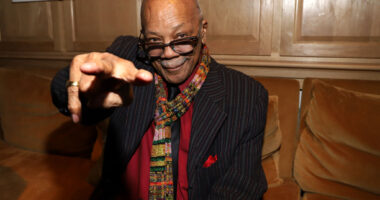Pastor Evans Adetokunbo Emmanuel is the Seaman of Grace Missions International, a teaching and Christian ministry development consultancy that helps ministers and ministries make eternal impacts through grace. In this interview he granted BOLA ADEWARA on behalf of Sunday Independent, he looks at the Christian ministry, the church, pastors and sermons from churches, the youth ministry and the rarity of Bible study sessions in many Churches today. Enjoy:
Did you ever imagine that you would end up preaching God’s word on the pulpit? Could you tell us about your background?
Yes and No. It wasn’t what I wanted to do. Though I was born into an Anglican priest’s family, my sister and I used to play with those liturgical programmes as kids. We’ll conduct imaginary naming ceremonies and other things we saw our dad do. But that’s just all about it. I was thinking more about being a soldier at first; that should be due to seeing soldiers when we were young; during the Civil War, an Army barracks wasn’t too far from where we lived, so they’d walk past in their uniform, I used to admire them a lot. My dad bought me a toy soldier drum. Growing up, I thought of many things I’d love to be: a medical doctor, a businessman, a livestock farmer, etc. Those pushed me towards the sciences even though I did better in geography, commerce, and history. I got the prizes for the best student in the last two in my Form 3, but I didn’t go to the Arts or the Commercial departments but to science. After pursuing admissions to read Medicine for about three years, I opted for Animal Science. Preaching wasn’t part of the plan. But towards the end of secondary school, I was born again, and I sensed that God had given me the grace to understand scriptures and to be able to communicate things I never knew anything about. Even then, I didn’t think it was something to pursue full-time until later.
What was your childhood like? Could you tell us about your family, upbringing, parents and education?
As my father was an Anglican priest, I grew up in the Vicarage until I was 10 when he passed on. My mother raised me from then on. I attended St Paul’s CMS Primary School in Omu Aran, Kwara State of Nigeria. Afterwards, I went to Titcombe College, Egbe, when it was still in Kwara State, now in Kogi State. I spent two years there before changing schools to Aisegba Community Grammar School. Went to A’ Level School at the Federal School of Arts and Science, Suleja, Niger State. From there I proceeded to read Agriculture (Animal Science) at the University of Ibadan, graduating in 1994.
Could you compare your parenting with that of your parents and the parenting we see today?
So many people are disappointed with current children and how parents raise them. I had a very tough experience because I lost my father when I was just nine. My mum did her best to raise us to desire to know God, continuing where my husband stopped. She was a teacher, and she didn’t have a lot of money. So, financially, it was tough, but we had three meals daily, which, looking back now, was fantastic. All they did didn’t stop me from being rough as a young boy. But, it prepared me to give Christ a thought when I had to make the decision for which I’m eternally grateful. I think it could be easier for my children because they grew up in a more close-knit system. They got to know God from the start, and even though they had to pass through their challenges, they understood what it is to walk in faith and to trust and obey God. We didn’t have the distractions of television and social media in our days, and so it helped our focus. Today, a young person can key his or her relationship with God into social media, but it might be difficult, and that’s where parenting with that in focus is key in today’s Christian parenting. Children’s rights weren’t so much an issue back then, unlike now when children have become so assertive and can question their parent’s choices and decisions. It calls for parents to know more about life and what they are doing. Now, we must be sure we are being more exemplary than just being authoritative or authoritarian. When they see goodness in their parents, they don’t mind copying, but they will react negatively to double standards.
How did your movements through secondary school and university dovetail into having a ministry? Who would you regard as your fathers in the Lord and mentors? Who were the people you saw those days that inspired you?
I got born again in my final year of secondary school. We used to call it Form 5 then. My faith was sad in those early years. By the time I was in A’ level school, God was already seriously tugging at my heart. I had worked briefly at the Ajaokuta Steel Complex before going to A’ level school. There, I met some wonderful Christian folks who showed me some basic things I was missing, especially about the baptism in the Holy Spirit. When I received the baptism, it wasn’t just the speaking in tongues which actually came later, but the fire. It ignited so much zeal and love for God in me, which still drives me till today. So, when I got to a level school, I gravitated towards young people like me who were also having similar experiences. I began sharing the scriptures with people because I saw things that amazed me from the scriptures. We had a wonderful time in fellowship and in the Spirit of God. I started public preaching there in school. Our leader heard me share some scriptures, and he felt the whole fellowship must hear. That was it. I was also a member of the Anglican Youth Fellowship at home at St Paul’s Omu Aran. They also gave me the opportunity to share in our fellowship and Bible Study meetings. One day, God told me at home to prepare that I was going to preach at the English service that Sunday morning. Ordinarily, we usually invited senior friends to come minister to us on Sunday mornings. But God told me to prepare, and He gave me what to preach. I prepared and went to church and sat down. Back in the day, we got to church before the service and sat quietly. While seating, the sister who used to coordinate came to me and said Brother Tokunbo, you’ll be preaching this morning. I was shocked to see how God had planned things. I preached to God’s glorious name. That was my first public preaching outside of the school fellowship system. It was 1988… that was the day God brought me out to preach among adults and in a public service outside of school fellowships. I got to the university that same year with a mandate to go preach and teach. I got to school before resumption, and I was allocated to a room in Kuti Hall Wooden Blocks, UI. One of those days, I was sitting quietly in my room when two brothers came in. They started to share God’s word with me, and we started discussing scriptures. Suddenly, they exclaimed, “You are the person. You are the person.” I asked what happened? They said they were outgoing officials of the Prelim Science Students Fellowship and that they’ve been praying to ask God to show them the person He had chosen to lead the fellowship next. They said God told them the person was in Kuti Hall Wooden Blocks and that they should go there, that He would lead them to the person. That was how a great ministry experience began for me in UI…all to God’s glory.
Could you tell us about the Nigerian youth and the nascent culture of sagging, hairstyles, nose-rings, earrings, mini or macro skirts, exposure of breasts, nakedness, etc. Would you say these youth are serious? Are they capable of directing the future of Nigeria, more particularly, the Church?
Every generation will always have such things. We, too, had haircuts, dress codes, etc., that made us think we were enjoying life. According to the scriptures, these things are all about youthful lusts, which the young man and woman must flee. But we must not mix them up with things that may not be out of place naturally, but are preached against on a mere religious basis without having any spiritual implications. It’s a dicey thing, really; we have seen young people who kept the religious codes of dressing and public manners without having any spiritual substance within so that when they face real temptations, they have nothing to withstand. We must ensure that the young man and woman have a genuine encounter with God in being born again and know Jesus Christ as his or her Lord, who must be obeyed, revered, believed, and served with everything they have. When this conviction is deep-seated in them beyond mere church attendance, we’ll have wonderful people who are anointed to do great things. The lusts of the flesh, the lusts of the eyes, and the pride of life must be fought in three children so that they know what God hates from what God loves and choose what He loves. Today, young people are being focused on money without God. They aren’t being taught that God gives and owns everything they can get, and that’s a hazardous thing we must deal with in these young people. We must be careful not to let them think they can become anything outside of God’s works in their lives. A spate of criticisms is rushing at the current Pastors, especially the Pentecostals. Issues of tithes, salvation, prosperity, ostentatious living, etc., are topical on social media.





